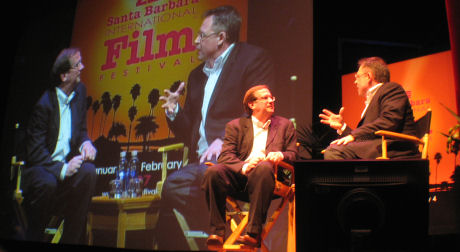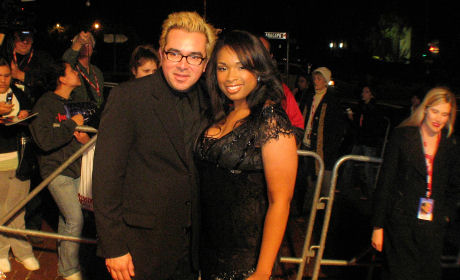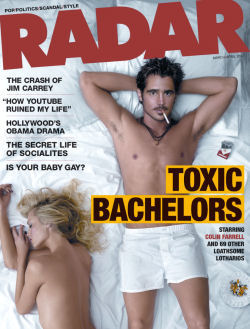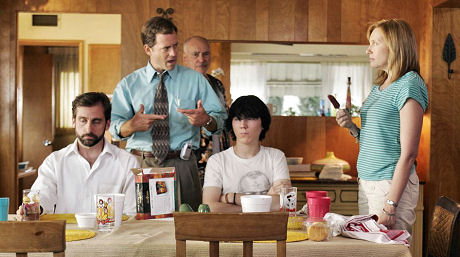I had only one medium-sized problem with the rough version of Resurrecting the Champ, which director Rod Lurie showed me several weeks before it played at Sundance ’07. The problem was Samuel L. Jackson‘s decision to play the lead character, a homeless guy with a secretive past, with a “whinny” voice — a raspy-reedy emission that feels like the polar opposite of Jackson’s usual sonorous, street-cat tenor-baritone thing.

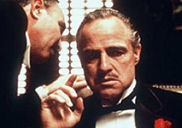 Jackson
Jackson in
Resurrecting the Champ;
Brando in
The GodfatherThe performance itself is solid and emotionally on-target, but I felt two ways about the whinny — it reminded me of Marlon Brando‘s voice after he gets shot in The Godfather (“We didn’t have enough time, Michael….not enough time”) and it felt a little too actorish, by which I sorta kinda mean indulgent. Like Kevin Costner‘s mid-Atlantic accent in Robin Hood, it seems to get in the way more than anything else. Forces of nature like Jackson should never do voices or accents — movie stars should always be the same guy.
Jackson’s performance has been totally captivating for some. The Hollywood Reporter‘s Duane Byrge called it “knock-out ” and “terrific,” so take my opinion with a grain. (For whatever reason, Variety didn’t review it during Sundance.)
I wrote several weeks prior to Sundance that I’d seen a rough version of Champ. The version that was shown in Park City was, I’m told, 10 or 15 minutes shorter. I’m still not going to spill anything, but the script — written by Lurie, Allison Burnett, Michael Bortman and Chris Gerolmo — has a fascinating second-act turn. The nominal plot is about a youngish, not-quite-established sports reporter (Josh Hartnett) lucking into a big story when he discovers that a frail homeless guy (Jackson) is actually a former heavyweight boxing champion previously thought to be dead. But the title doesn’t mean what you might think.
Alan Alda and Peter Coyote give the best supporting performances. The most unwelcome (for me, in the longer cut) was Kathryn Morris‘s performance as Hartnett’s wife. Not because she’s unskilled or unappealing (far from it) but because she chose to wear a pissed-off, nagging-wife, guilt-trip expression during the bulk of her screen time. I delicately suggested to Lurie that he do something about this in the final edit — it’s the same expression my ex-wife used to have when our marriage was falling apart, and as much of an asshole as this might make me sound, it felt irritating as shit to absorb this on a scene-after-scene basis.
